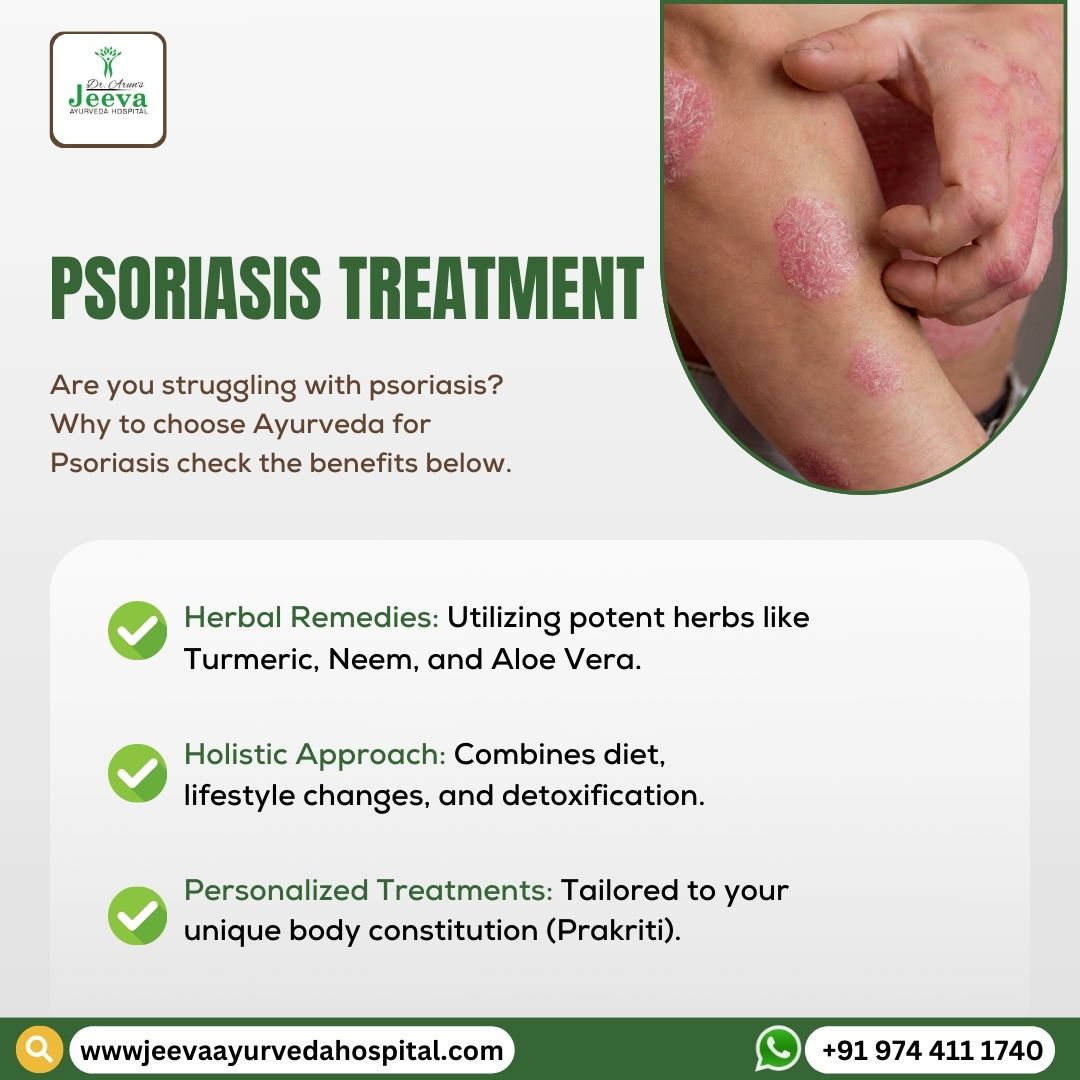Psoriasis is a chronic skin condition that causes red, itchy, and scaly patches. While conventional treatments can be effective, Ayurvedic medicine offers natural alternatives that can help manage symptoms and improve overall skin health. This blog post explores Ayurvedic remedies for psoriasis, including herbal treatments, dietary changes, and lifestyle practices that promote healing and provide relief.
Ayurvedic Medicine for Psoriasis Skin Care: Natural Healing and Relief
Psoriasis is a persistent and often distressing skin condition characterized by red, itchy, and scaly patches. While modern medicine offers various treatments, Ayurvedic medicine provides natural and holistic approaches that can effectively manage psoriasis symptoms and promote skin health. In this blog post, we delve into the principles of Ayurveda, its remedies for psoriasis, and how these natural treatments can transform your skincare routine.
Understanding Psoriasis in Ayurveda
In Ayurveda, psoriasis is often compared to “Ekakushta,” a condition resulting from an imbalance of the doshas (Vata, Pitta, and Kapha). This imbalance leads to the accumulation of toxins (Ama) in the body, which manifests as skin lesions. Ayurvedic treatments focus on restoring balance, detoxifying the body, and strengthening the immune system.
Ayurvedic Remedies for Psoriasis
Ayurveda offers a variety of natural remedies to help manage psoriasis. Here are some of the most effective treatments:
1. Herbal Treatments
Neem (Azadirachta indica): Known for its anti-inflammatory and antimicrobial properties, neem helps reduce redness and itching. Neem oil or neem leaf paste can be applied directly to the affected areas.
Turmeric (Curcuma longa): Turmeric’s anti-inflammatory and antioxidant properties make it a potent remedy for psoriasis. Applying turmeric paste to the skin or consuming turmeric in your diet can help alleviate symptoms.
Aloe Vera (Aloe barbadensis): Aloe vera soothes and moisturizes the skin, reducing irritation and dryness. Fresh aloe vera gel can be applied to the psoriasis patches to promote healing.
Guggulu (Commiphora mukul): This resin is used to purify the blood and reduce inflammation. It can be taken in tablet form or used in topical preparations.
2. Dietary Changes
Avoid Trigger Foods: In Ayurveda, certain foods can aggravate psoriasis. Avoid spicy, oily, and processed foods, as well as excessive consumption of red meat and dairy products.
Eat Cooling Foods: Incorporate cooling and anti-inflammatory foods like cucumbers, leafy greens, and fruits into your diet. These help balance the Pitta dosha.
Hydration: Drink plenty of water and herbal teas to keep the body hydrated and flush out toxins.
3. Detoxification and Panchakarma
Panchakarma: This Ayurvedic detoxification therapy involves a series of treatments designed to cleanse the body of toxins. Therapies such as Vamana (therapeutic vomiting), Virechana (purgation), and Raktamokshana (bloodletting) are tailored to the individual’s needs.
Herbal Teas: Consuming herbal teas made from ingredients like ginger, turmeric, and tulsi can aid in detoxification and improve digestion.
4. Lifestyle Practices
Stress Management: Stress can trigger psoriasis flare-ups. Practices such as yoga, meditation, and deep breathing exercises can help manage stress levels.
Regular Exercise: Moderate exercise improves blood circulation and helps maintain a healthy weight, which can alleviate symptoms.
Sunlight Exposure: Limited exposure to sunlight can improve psoriasis symptoms due to the natural anti-inflammatory effects of UV rays. However, avoid excessive sun exposure to prevent skin damage.
The Benefits of Ayurvedic Treatment for Psoriasis
Ayurvedic treatments for psoriasis offer several benefits:
Natural Ingredients: Ayurvedic remedies use natural herbs and ingredients, reducing the risk of side effects associated with synthetic medications.
Holistic Approach: Ayurveda treats the root cause of psoriasis, focusing on overall well-being rather than just symptom relief.
Personalized Care: Treatments are tailored to the individual’s dosha imbalance, ensuring a personalized and effective approach.
Conclusion
Managing psoriasis with Ayurvedic medicine offers a natural, holistic approach that can lead to significant improvements in skin health and overall well-being. By incorporating herbal treatments, dietary changes, detoxification, and lifestyle practices, you can effectively manage psoriasis symptoms and enhance your quality of life. If you’re seeking a natural and comprehensive approach to skincare, consider exploring Ayurvedic remedies and transform your life with the healing power of nature.


Give a Reply